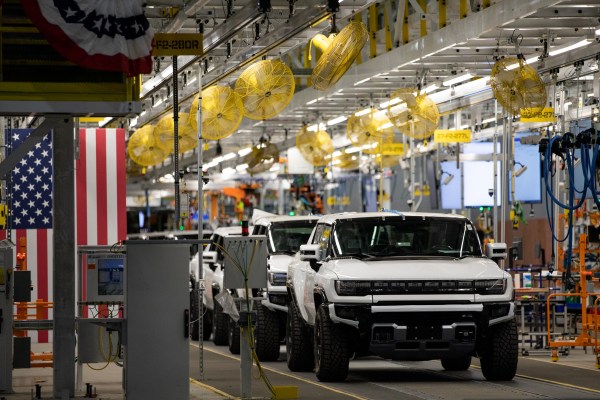The United States Department of Energy is dedicating $15.5 billion to support the transition to electric vehicles.
As part of President Joe Biden’s Investing in America agenda, most of the money will go to automakers and suppliers to retool their plants to produce electric, hybrid and hydrogen fuel cell electric vehicles, the agency said Thursday. A total of $12 billion ($2 billion in grants and $10 billion in loans) will directly support automotive manufacturing conversion projects for light-, medium- and heavy-duty EVs.
The remaining $3.5 billion will go toward expanding domestic manufacturing of batteries for EVs and the nation’s grid, as well as battery materials and components that have historically been imported from other countries. This is the second tranche of funding for battery materials and manufacturing that the DOE has made available.
Over the past few years, a range of automakers and battery manufacturers have shared plans to build battery manufacturing facilities on U.S. soil. The wave of onshoring began as the COVID-19 pandemic clogged up supply chains and made getting critical battery materials, most of which are produced in China, difficult. The passage of the Inflation Reduction Act in August 2022 has only boosted domestic manufacturing efforts — the IRA is rife with incentives for manufacturers, although the Treasury still needs to provide guidance on many of the bill’s initiatives.
The federal investments into domestic EV and battery manufacturing are in line with the Biden administration’s commitment to bringing high-paying manufacturing jobs to Americans, particularly in conservative states like Georgia, North Carolina and Tennessee.
Manufacturers will be able to apply for grants through the DOE’s Office of Manufacturing and Energy Supply Chains or for preferable debt financing through the DOE’s Loan Program Office. Preference will be given to companies with plants in communities with a history of automotive manufacturing and to projects that commit to paying high wages for production workers and maintain collective bargaining agreements.
